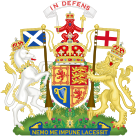| Act of the Scottish Parliament | |
 | |
| Long title | An Act of the Scottish Parliament to make provision about the sheriff courts; to establish a Sheriff Appeal Court; to make provision about civil court procedure; to make provision about appeals in civil proceedings; to make provision about appeals in criminal proceedings; to make provision about judges of the Court of Session; to make provision about the Scottish Land Court; to make provision about justice of the peace courts; to rename the Scottish Court Service and give it functions in relation to tribunals; to provide for assistants to the Judicial Appointments Board for Scotland; and for connected purposes. |
|---|---|
| Citation | 2014 asp 18 |
| Introduced by | Kenny MacAskill |
| Territorial extent | Scotland |
| Dates | |
| Royal assent | 10 November 2014 |
| Commencement | 22 September 2015 |
Status: Current legislation | |
| History of passage through Parliament | |
| Text of statute as originally enacted | |
| Text of the Courts Reform (Scotland) Act 2014 as in force today (including any amendments) within the United Kingdom, from legislation.gov.uk. | |
The Courts Reform (Scotland) Act 2014 (asp 18) is an Act of the Scottish Parliament passed in October 2014 to improve access to the civil justice system and while making the Court of Session a place for the more complex cases.